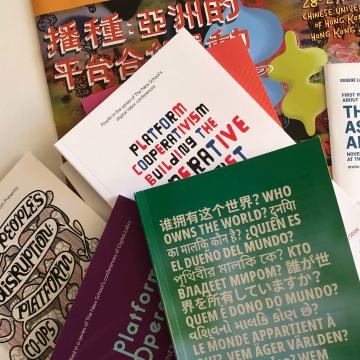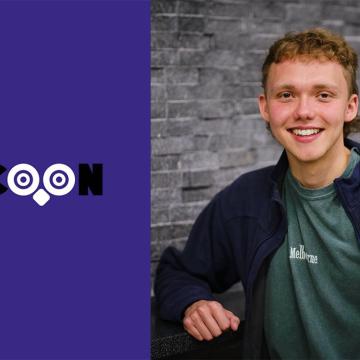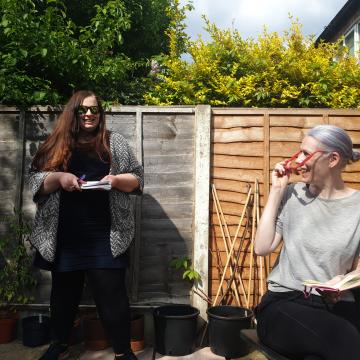Deep Time: A revolution in co‑operative archaeology
Case study

Meet the archaeological ‘pastronauts’ and professionals who are coming together via an ingenious tech co-op that’s working to safeguard the planet.
When Covid 19 struck in 2020, the team behind DigVentures – a collaborative platform that enables the public to participate with archaeology research – had to rethink their activity.
“With successive lockdowns, we couldn’t get out and dig, so we decided to open online courses and digital activities so people could join in from home,” said DigVentures’ Brendon Wilkins.
This pandemic pivot sowed the seeds of an exciting new venture entitled Deep Time. “It’s a digital archaeological mapping platform that everyday citizens can use to find sites,” Brendon said.
Ingeniously using a combination of data and technologies, Deep Time offers users the skills, tools and knowledge to locate areas of archaeological interest.
“Deep Time also uses a GIS (geographical information system), which is a piece of software with layers, such as historic maps and satellite imagery. Each layer contains different types of information about the area, including the outline of archaeological features and meta data describing its type and historical period.
“LiDAR data is one of those layers. It’s a laser scan of the ground surface collected by a plane flying above. It shows the lumps and bumps that would detect archaeology under the surface.
“Using these layers and toggling between them, you can locate potential archaeological sites. Our participatory GIS can be used by anyone with an internet connection and a web browser.”

Using DigVentures’ database of people with a passion for history and archaeology, the Deep Time team have already recruited a number of cohorts and trained them to use the technology.
“They go through an intensive four-week training period, after which they can make hundreds of feature identifications,” said Brendon. “We take people with no previous experience – who we call ‘cadets’ – and by end of it they can act as the equivalent to professionals.”
These cadets graduate to become ‘pastronauts’ who use the platform to identify potential sites of archaeological interest, which are then verified by senior members of the community known as ‘mission leaders’ and ‘mission control.’
As well as being a way for people to connect with place, heritage and history, Deep Time has an important ecological purpose, as Brendon explained:
“The net zero commitment the government has made is for a certain amount of tree planting and peatland reclamation per year. Land needs to be surveyed for archaeological heritage in advance of redeveloping it for this purpose.
“This means that to meet net zero targets, there’s a greater demand for archaeology than the UK’s 6,000 professional archaeologists can cope with.
The Deep Time team were part of the 2023 cohort of the UnFound Accelerator – a business development programme for platform co‑ops delivered by Co‑operatives UK and supported by The Co‑operative Bank.
As well as finding value in connecting with other innovators on the programme, Brendon and his colleagues found it helped them get clear on their purpose.
“We worked through some of our taken-for-granted assumptions and went back several steps to refine the ‘why’ of what we were doing: We’re helping communities to safeguard the planet and regenerate the economy for a fairer world.”
Thanks to UnFound, the team also came up with a business model that suits their collaborative, not-for-profit ethos – a multi-stakeholder data platform co-operative.
The Deep Time team are still developing their technology, processes and structure, while training cadets for a number of projects focusing on different sites across the UK. They are also aiming to have their co-operative structure fully set up by the end of 2023.
“We are inventing the cart and the horse at the same time,” said Brendon. “There’s no way we could have done it with without UnFound, that support is really crucial.”
Find out more
- DigVentures/Deep Time: Website | X | Facebook | Instagram | YouTube | flickr | LinkedIn
- Discover how we’re enabling tech and digital in the co-op movement
-
Co-operatives UK’s digital resources and registration for new co-ops

Enabling tech and digital

About UnFound

Why platform co-ops?

How to start a platform co‑op

Support for platform co-ops

Winners of the 2023 UnFound Accelerator £10,000 prize fund revealed

Kocoon: Empowering self-care through access to wellbeing resources

Red Brick Language School: Happier teachers and better lessons – the co‑op way

The Learning Cooperative: Education with a radical, fair‑priced approach


